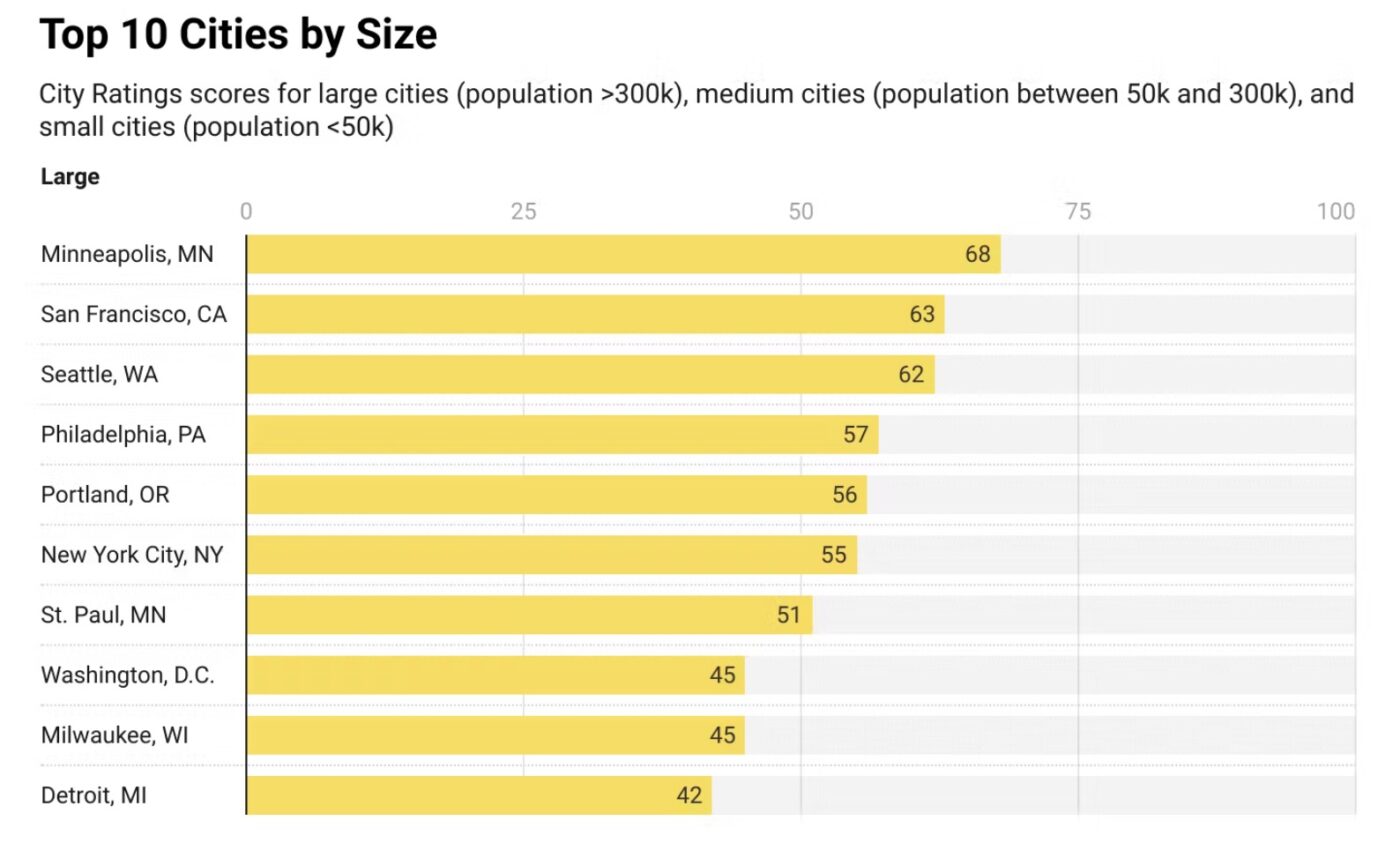America’s largest and most influential bike advocacy nonprofit just released their annual City Ratings and Portland has placed fifth in the large city category. And unlike many other rankings (like the silly clickbait one that got too much attention earlier this month), these actually mean something.
Industry-funded People for Bikes ranked 1,484 U.S. cities for their ratings this year on a scale from 0 to 100. Portland earned a score of 56, putting us in fifth place. The leading American city (they also ranked 249 international cities) was Minneapolis with a score of 68. San Francisco (63), Seattle (62), and Philadelphia (57) rounded out the top four. Portland finished just one point ahead of New York City.
Portland jumped up two points from last year’s rankings and has remained relatively flat since 2020. By contrast, Minneapolis made a 31-point jump in one year. For a bit of perspective on how well (or not) we are doing, one of the world’s leading cycling cities, Amsterdam, scored an 82.
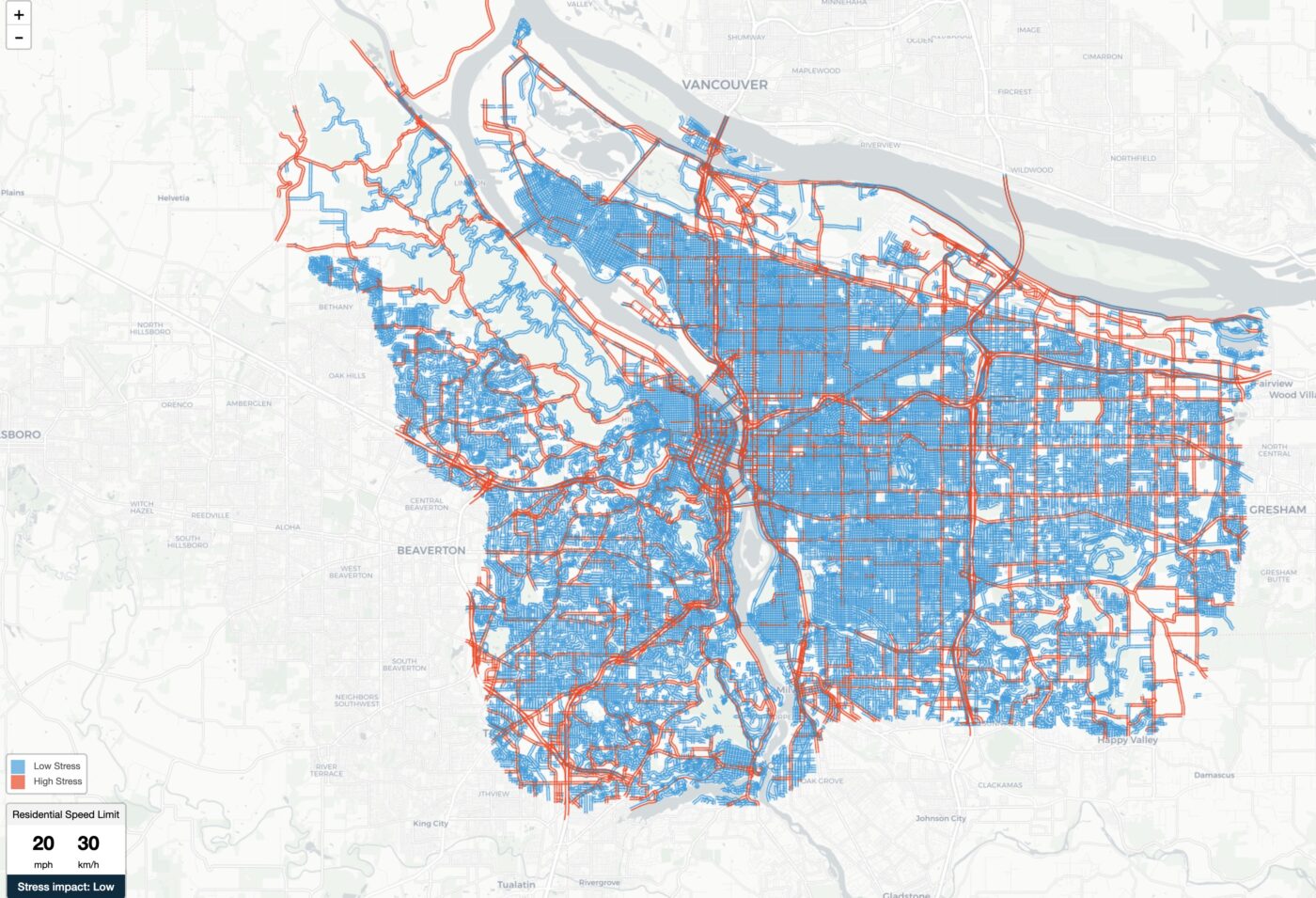
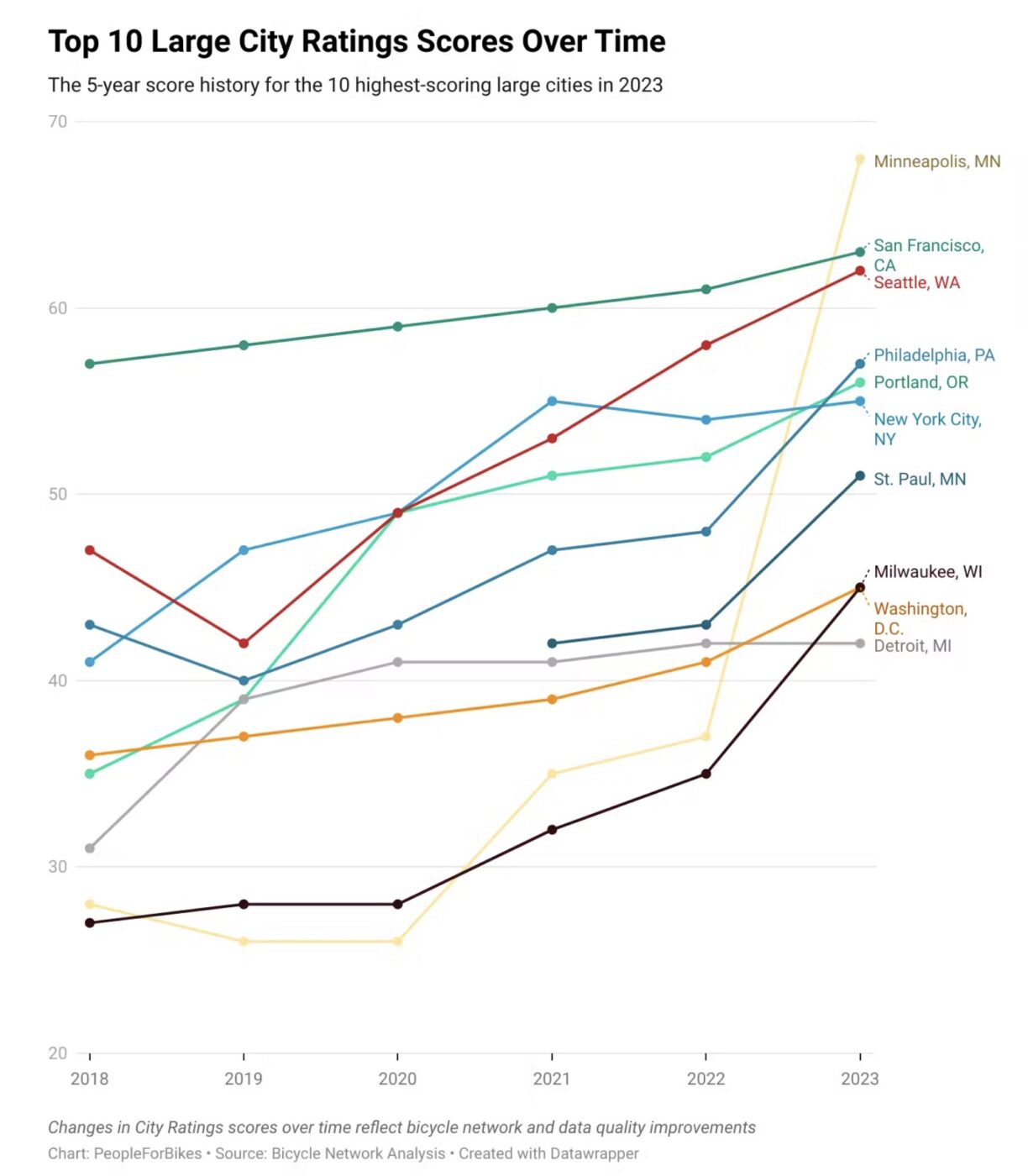
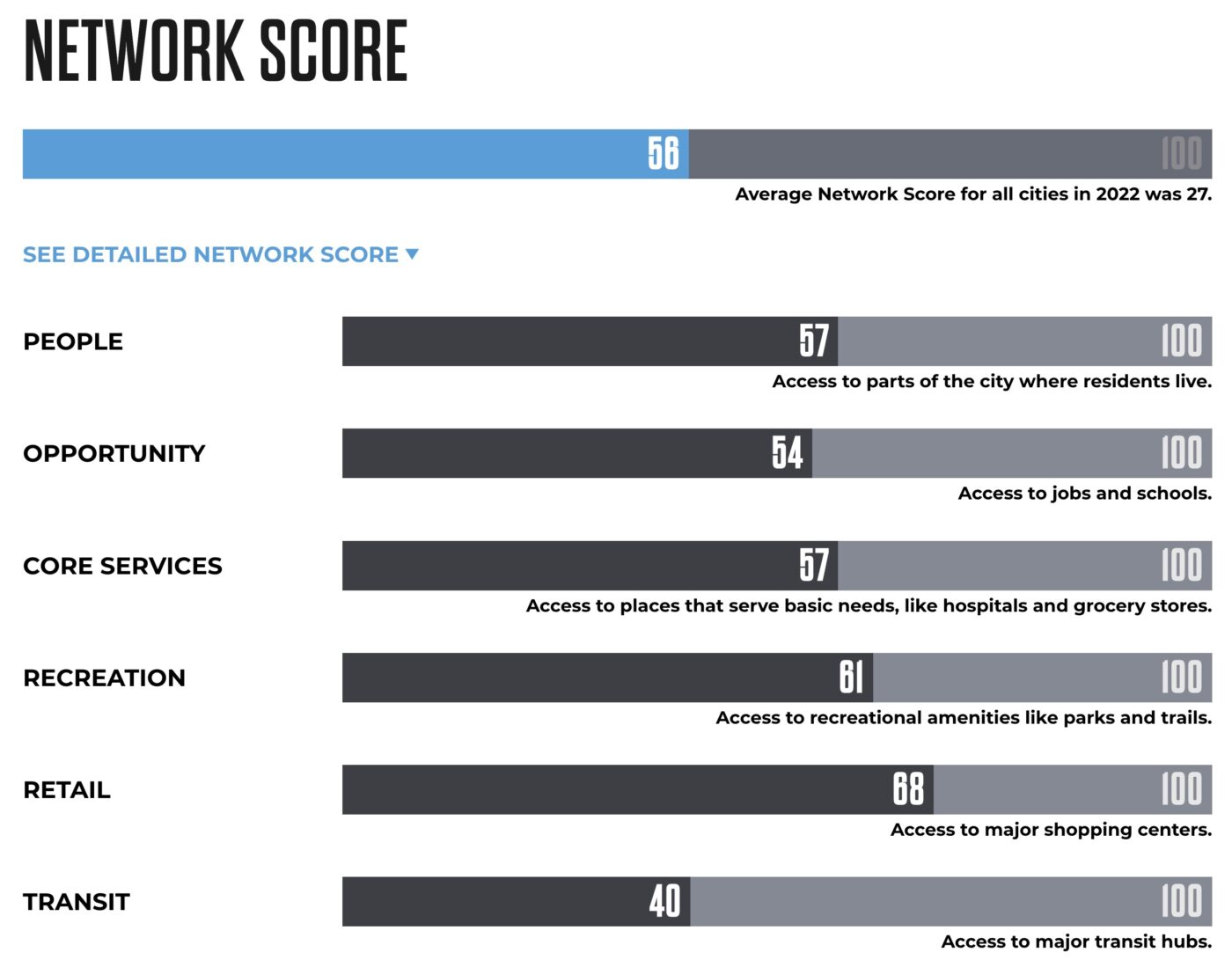
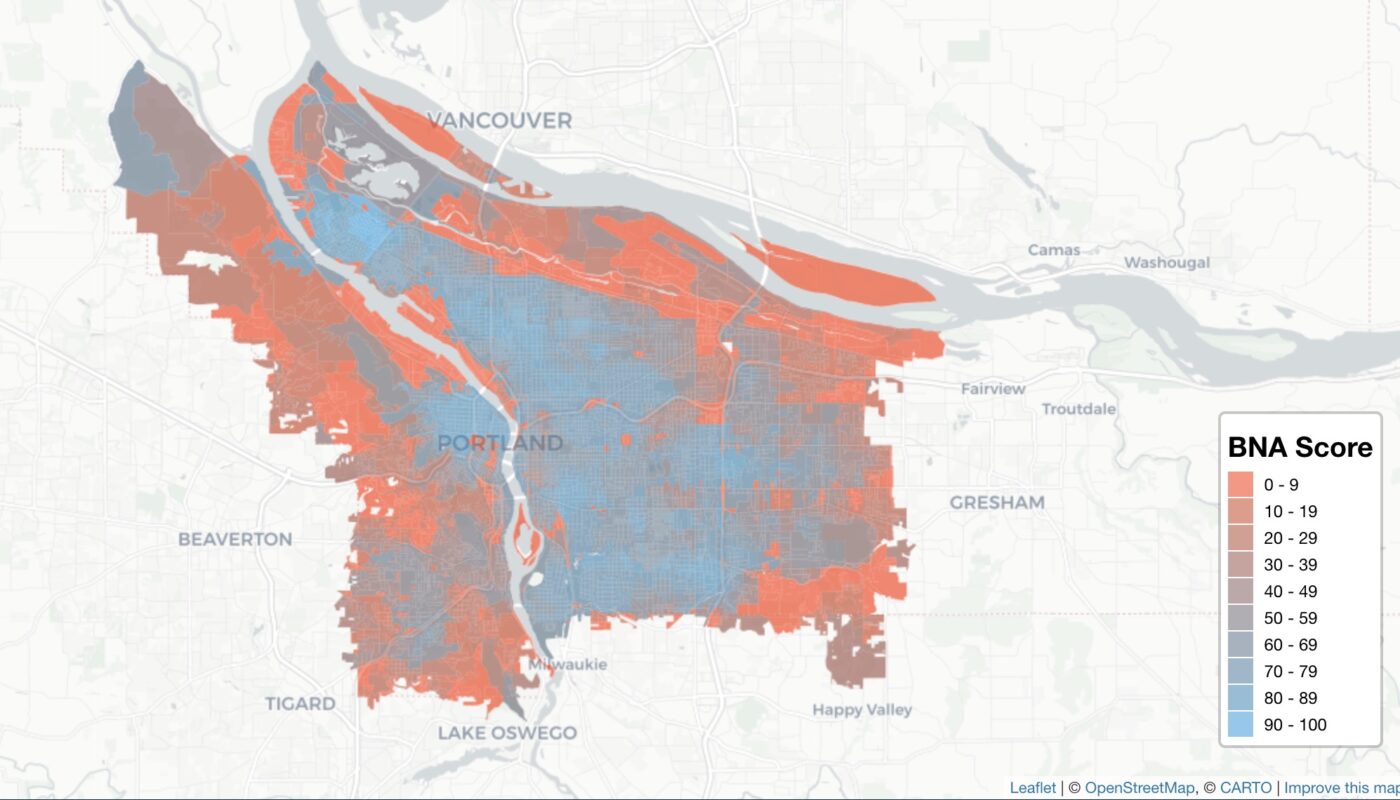
People for Bikes uses a detailed process called the Bicycle Network Analysis (BNA) to arrive at these scores. Instead of only looking at self-reported mode-split numbers or the (not really that helpful) U.S. Census commuting data, the BNA goes much deeper. It attempts to assess how connected a city’s bike network is and how stressful it is to reach various locations by bike. They do this by overlaying existing bike infrastructure with things like speed limits, population centers, and the locations of jobs and other destinations. Another big part of their methodology is to look at the level of “bicycle traffic stress” likely to be associated with a given type of bikeway treatment within a network.
According to People for Bikes, a score of 50 is, ” the tipping point to becoming a great place to bike,” — so Portland is just over that hump. For a further bit of context, of all the cities ranked, the average score was 23. More than half of all U.S. cities ranked scored between 10 and 30.
Several other Oregon cities were also ranked. Below is how they fared from best to worst:
- Ashland – 70
- Corvallis – 63
- Brookings – 39
- Eugene – 36
- Hillsboro – 36
- Grants Pass – 33
- Beaverton – 29
- Bend – 29
- Klamath Falls – 29
- Hood River – 27
- Tigard – 27
- Medford – 26
- Albany – 23
- Oregon City – 22
- Redmond – 22
- Gresham – 20
- Lake Oswego – 20
- Happy Valley – 19
- Salem – 17
While Portland has taken its lumps lately in terms of falling off the podium of great cycling cities, these numbers should help remind us that we have a solid foundation to build on. Of course, no rating system is perfect, but it feels like this is the best one currently on offer and we need a measurement tool to hold us accountable for progress (or slippage).
As local officials have grappled with our decline in cycling numbers, some of them act clueless as to why it might be happening. “We have the best and most complete bike infrastructure network we’ve ever had,” they say. “We have built it, but they are not coming,” they say, as they scratch their heads. It’s maddening they don’t understand that it doesn’t matter what you build, it only matters if it’s good enough to let your kids or your elders ride on it.
As this analysis helps show, it’s not the network itself that determines how many people will ride bikes; it’s whether or not they can do so without stress. To move the needle — and rise to our rightful place on top of these rankings — Portland needs to have a laser-focus on creating low-stress cycling environments citywide.
And p.s. (written, June 30th), I didn’t mention this when the post was first published. But what this and other rankings never take into account is the culture around cycling in a city. On that metric, I think Portland would rank first in the world. I’m biased, and I haven’t been to every city in the world; but I have not heard or seen of any city that comes close the vast and wonderful bike culture we have here. And it’s more important to being “bike friendly” than you might think — perhaps just as important as infrastructure!


